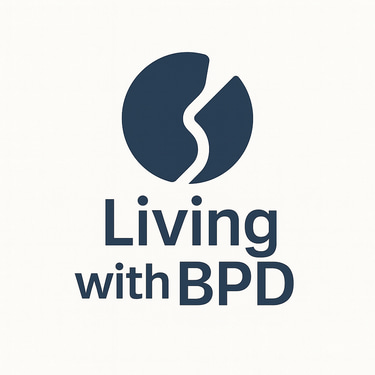

HELP FOR THE SICK
A real, practical, and unvarnished guide to help you get back on your feet
Living with a mental disorder, especially with BPD or problematic substance use, isn't just a pretty phrase in a report. It's a war. A daily, long, dirty, and exhausting war… but one that can be won if you start in the right place.
This isn't theory.
This is pure, firsthand experience.
Here's what saved my life, explained the way I wish someone had explained it to me.
1. If you use substances, start there.
Don't skip this step!
If you're drinking, smoking weed, using cocaine, pills, benzodiazepines, or anything else you use "to calm down," "to sleep," "to numb yourself"... start with the substance use.
Not because you're an addict or a failure.
But because a mental disorder masked by substances is impossible to diagnose properly.
And because almost always, underlying substance use is a real disorder: anxiety, depression, borderline personality disorder, trauma… but while you're using, everything gets mixed up, confused, and destroys you.
It's not a moral issue, it's biological: an intoxicated brain cannot stabilize.
So the first step is simple and incredibly difficult:
admit that you have a substance use you can't control.
And seek help.
2. Primary Care: the entry point.
Be clear. Be honest.
Go to your primary care physician and tell them exactly what you think:
“I'm using.”
“I'm emotionally unwell.”
“I'm at a dangerous point.”
“I need help now.”
Don't keep anything to yourself out of shame. Shame is what kills you, not what saves you.
Ask for a referral to the Addictive Behaviors Unit (UCA).
It's the fastest, most effective, and most humane path. There, they don't wait six months to see you.
3. UCA: Help that arrives quickly.
At UCA you have:
Weekly or bi-weekly psychiatric care.
Check-ups, follow-up, and adjusted medication.
Treatment from day one.
A real assessment of your mental state when you're no longer masking it with substances.
UCA saves lives. And it saves time.
And believe me, when you're struggling, time is the most dangerous weapon.
4. The psychologist at the Health Center: ask for one urgently.
Find a private psychologist if you can afford it.
There is a waiting list here, but you can request an earlier appointment if you explain what's really happening:
That you're struggling emotionally.
That you're falling apart.
That you can't work.
That you need urgent therapeutic support.
In many cases, this saves months.
Don't say "I'm okay." Tell the truth.
5. Sick leave isn't failure: it's time to avoid dying inside.
If your job helps you, perfect.
If your job is destroying you, request temporary disability leave.
It's not lazy to request sick leave when you're falling apart.
It's brave.
Because you're asking for time to heal without continuing to break down inside.
Having borderline personality disorder, severe depression, anxiety, substance abuse… isn't compatible with continuing to act as if nothing's wrong.
It's compatible with stopping, getting treatment, and rebuilding yourself.
6. Dedicate time to your recovery. Every minute you can.
If you've spent, like me, 20 or 30 years living life at breakneck speed, destroying yourself and constantly putting out fires… don't really expect to fix it in two months.
It works like this:
Years of self-destruction.
Years of self-reconstruction.
It's not fast.
It's not magic.
But it's possible. And it's worth it.
You're going to have shitty days, relapses, anger, shame, exhaustion, panic…
But you're also going to have clarity, calm, progress, pride, and moments that remind you you're alive. TEARS OF JOY
Recovery is slow, but it's real.
And it's worth every damn effort.
7. If you want it, you can do it… but you have to truly want it.
This isn't about motivational phrases on posters.
It's about a life-changing decision.
If you want it, you can do it.
But you have to want it.
And wanting it hurts.
Wanting it means stopping hiding.
It means calling things by their name.
It means asking for help even if your pride is killing you.
It means letting go of what numbs you even if it hurts.
It means going to therapy when you don't feel like it.
It means taking your medication even if it makes you feel awful.
It means changing habits that have been with you your whole life.
Wanting it means betting on yourself even when your head tells you you're worthless.
Those who truly want it, change.
Slowly, clumsily, with relapses… but they change.
Those who only "want to want it," don't.
This is about courage, not magic.
And the first great act of courage is truly wanting it.
Important notice: The information on this website is for informational purposes only and does not replace medical, psychological, or psychiatric care. In case of emergency or emotional crisis, contact the appropriate health services. 📞 112 📧 ayuda@vivircontlp.com · Legal notice · Privacy policy · Cookie policy
